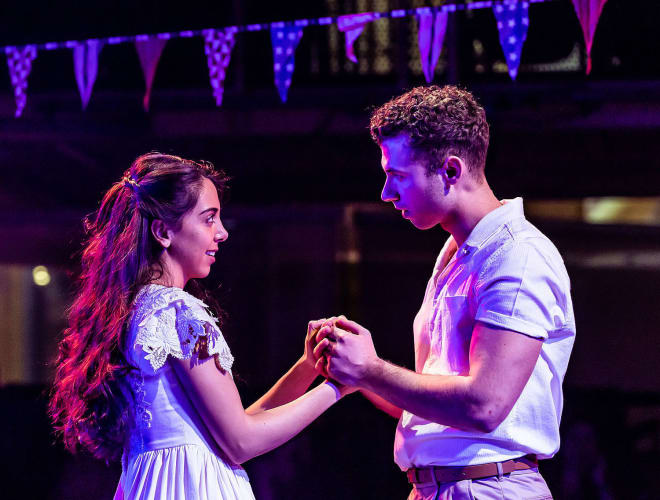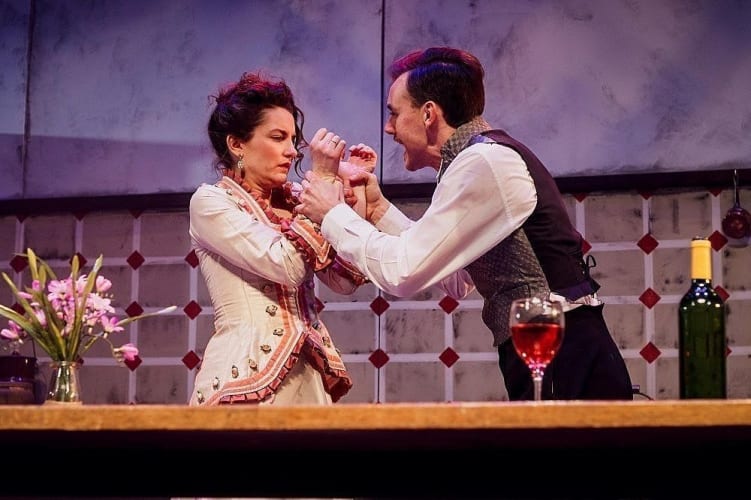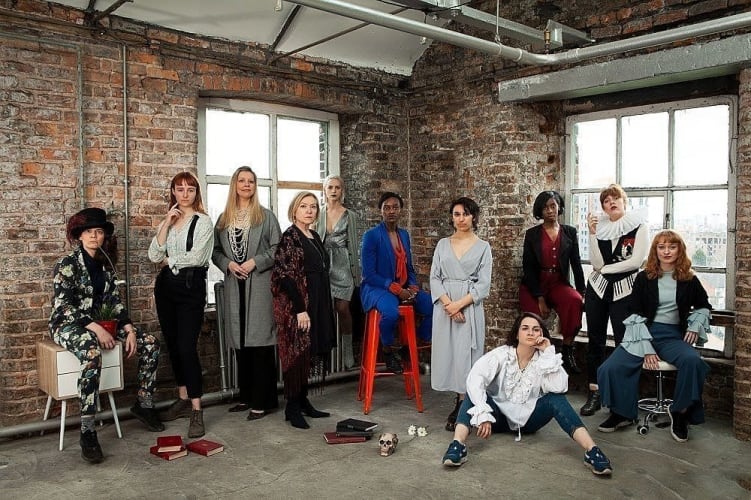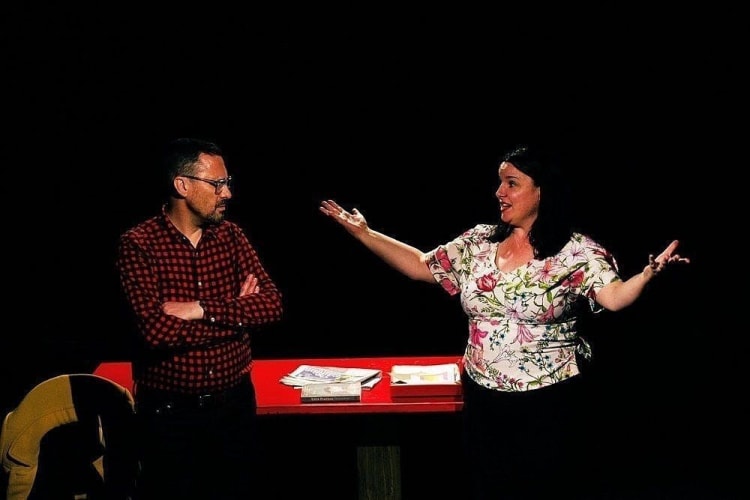Preparing a ‘best of’ list has the unexpected effect of drawing out prejudices. While I enjoy all types of theatre, I suspect I’m not alone in feeling the plays which deserve to be included on any such list are those which are serious: the dramas. This is something of a problem as it is hard to think of any decent original dramas that were staged in 2019.
In 2019, the most outstanding shows came from the genre one tends to regard as a bit trivial: the musicals. The Royal Exchange defied the odds with West Side Story. It ought not to have worked; the theatre-in-the-round stage meant that the original choreography could not be used and it was the first time Sarah Frankcom had directed a musical. Yet this was a vivid, stripped-back production in which little was allowed to interfere with, or distract from, the important business of singing and dancing. Lightning struck twice with the same venue staging a stunning version of Gypsy in which Ria Jones gave a powerhouse vocal performance that raised the roof. The Book of Mormon at the Palace was one of those rare shows that actually lived up to the hype. Challenging to the point of being offensive, this was a hilarious musical. Mame was, surprisingly, the first revival for 50 years and a non-stop party that left audiences breathless but delighted. It was a perfect way of celebrating the fourth anniversary of Hope Mill.
There were some impressive comedies. Jon Brittain’s Rotterdam at the Opera House was remarkably effective in linking the piping hot topic of confusion arising from gender fluidity to a traditional situation comedy structure. Joshua Harmon’s Admissions at The Lowry addressed the highly topical themes of unearned privilege and the complexities arising from positive discrimination. The play was dominated by a storming performance from Alex Kingston who did not hide the monstrous aspects of her character but managed to draw out the internal conflict of maternal concern for a son’s progress clashing with sincerely held principles.
There were some fine performances in 2019. Elysium Theatre’s Danny Solomon seemed to be aspiring to the old James Brown title of the hardest working man in showbiz cropping up in three productions (four if you count a revival). Solomon gave his usual exceptional performance and his standard was matched (and one might argue surpassed) by his co-stars Alice Frankham and Hannah Ellis Ryan in, respectively, Miss Julie and Danny and the Deep Blue Sea (both at Hope Mill).
The Fringe offered some unexpected delights, particularly from companies that refused to acknowledge any limitations imposed by the scant resources available to that sector of theatre. Girl Gang Manchester and Unseemly Women‘s all-female production of the full text of Hamlet stood out although the determining characteristics were the enthusiasm and talent, rather than the gender, of the cast. Mrs Pankhurst’s Players’ Shrew radically revised Shakespeare’s The Taming of the Shrew from a comedy to a brutal domestic drama under the hashtag ‘It’s not funny’. Laura Harper’s A Quick Guide to Ruining your Life was comedy gold with a charming performance from Diana Atkins. Rois Doherty’s Death of a Muse was a gleefully irreverent and at times silly play that drew out the humanity of William Butler Yeates and his muse Maud Gonne who, while remarkable, were far from perfect. Sean Denyer’s The Decriminalisation Monologues was a powerful play and a tribute to the courage of those people willing to challenge everyday injustice.
But as well as being a disappointing year for drama, 2019 was notable as one in which the relationship between theatres and their audiences took some unpleasant turns. There were reports of front of house staff in London theatres wearing body cameras to record the antisocial antics of patrons and in Edinburgh, Fringe companies were harassed while leafleting their shows.
There are worrying signs of these hostile behaviours materialising closer to home. During the biennial Manchester International Festival, Albert Square in Manchester is transformed into a mini-village to be used as a focal point for the MIF. I have fond memories of the arrangements made for the 2015 Festival. Punters could wander freely around the square, deckchairs were set out so you could sit and chat and fringe companies were cheekily performing extracts from their shows in the hope of drumming up trade for the rival Fringe Festival. It was such a pleasant atmosphere that I returned there on a daily basis during my lunch break just to eat my sarnies and have a chat.
In 2017, however, the perceived need for security gave the organisers an excuse to refuse entry to the square (which is, let’s not forget, a public open space) to anyone daring to bring in food not purchased on-site. Not being made of cash, I declined to enter assuming the atmosphere that had been so enjoyable the last time would be absent. In 2019 I didn’t even try—I know when I’m not wanted.
It was always accepted that security at venues was just an excuse to stop punters bringing in their own refreshments, but in 2019 things started to get serious. I was invited to review a show being staged in a community centre / library in a part of town with which I was unfamiliar. Wanting to be sure it was accessible by bus, I made an advance visit. A security guard said that entry to the library was conditional upon completing a form specifying name, address and organisation represented. Being a member of the public wishing to gain entry to a public building was, apparently, insufficient. So I declined to enter and the show went without a review.
The biggest theatre in the region now has now introduced, according to the signs outside, discrete security measures. Entrance is conditional upon consenting to having your bags searched and being frisked by a guard with an electronic wand. Finding this a bit much, and being both childish and a fan of Spinal Tap, I stuffed my keys in my underpants to see how the guard would react when the alarm went off. Naturally on that occasion I wasn’t frisked.
Theatres are now under pressure to provide security measures but this approach does not take account of the nature of modern audiences. Theatres are no longer restricted to the moneyed elite who could roll up in carriages free of any encumbrances. Nowadays, people try to squeeze in as much as possible into their daily lives and may arrive at the theatre fresh from work or the gym clutching briefcases, laptops or kit-bags. They may find it irritating to be treated with suspicion.
There is a nasty irony hanging over the situation. The pressure for security was prompted by terrorist attacks in London, Manchester and Paris. Yet, after those attacks, going out to theatres, nightclubs and restaurants was promoted as patriotic—defying the terrorists who wanted to destroy our culture and lifestyle. Now the heavy-handed security is actually acting as a deterrent to people who just want to enjoy a good night out.
So really it felt like, although there was little decent drama on stage this year, there was some unwanted tension in the atmosphere. It was a disappointing year in which what should have been minor niggles assumed a disproportionate significance. Still, 2020 has arrived and 53 Two is scheduled to reopen, so things might look up.




